Bolivia coup: Army chief arrested after rebellion as president urges people to take to the streets
Commander Juan Jose Zuniga detained on suspicion of terrorism after armed uprising in La Paz as President Luis Arce replaces military chiefs and thanks public for support
Your support helps us to tell the story
From reproductive rights to climate change to Big Tech, The Independent is on the ground when the story is developing. Whether it's investigating the financials of Elon Musk's pro-Trump PAC or producing our latest documentary, 'The A Word', which shines a light on the American women fighting for reproductive rights, we know how important it is to parse out the facts from the messaging.
At such a critical moment in US history, we need reporters on the ground. Your donation allows us to keep sending journalists to speak to both sides of the story.
The Independent is trusted by Americans across the entire political spectrum. And unlike many other quality news outlets, we choose not to lock Americans out of our reporting and analysis with paywalls. We believe quality journalism should be available to everyone, paid for by those who can afford it.
Your support makes all the difference.A senior Bolivian general was arrested after armoured vehicles rammed the doors of the government palace in La Paz on Wednesay in what President Luis Arce called an attempted coup.
Forces led by army chief General Juan Jose Zuniga appeared to take control of Mr Arce’s government as they vowed to “restore democracy” but the president vowed to hold firm and swiftly named a new military commander, who immediately ordered the troops to stand down.
The soldiers duly pulled back, along with a line of military vehicles, ending the rebellion after three chaotic hours, as hundreds of Mr Arce’s supporters rushed the square outside the palace, waving Bolivian flags, singing the national anthem and cheering.
Government minister Eduardo del Castillo said former Vice Admiral Juan Arnez Salvador was also taken into custody.
“What was this group’s goal? The goal was to overturn the democratically elected authority,” Mr del Castillo told journalists in announcing the arrests.
The apparent coup attempt came after the South American nation of 12m people faced months of tensions between Mr Arce and his one-time ally, former leftist president Evo Morales, over control of the ruling party.
It also came amid a severe economic crisis.
Bolivia’s president raises clenched fist after failed coup
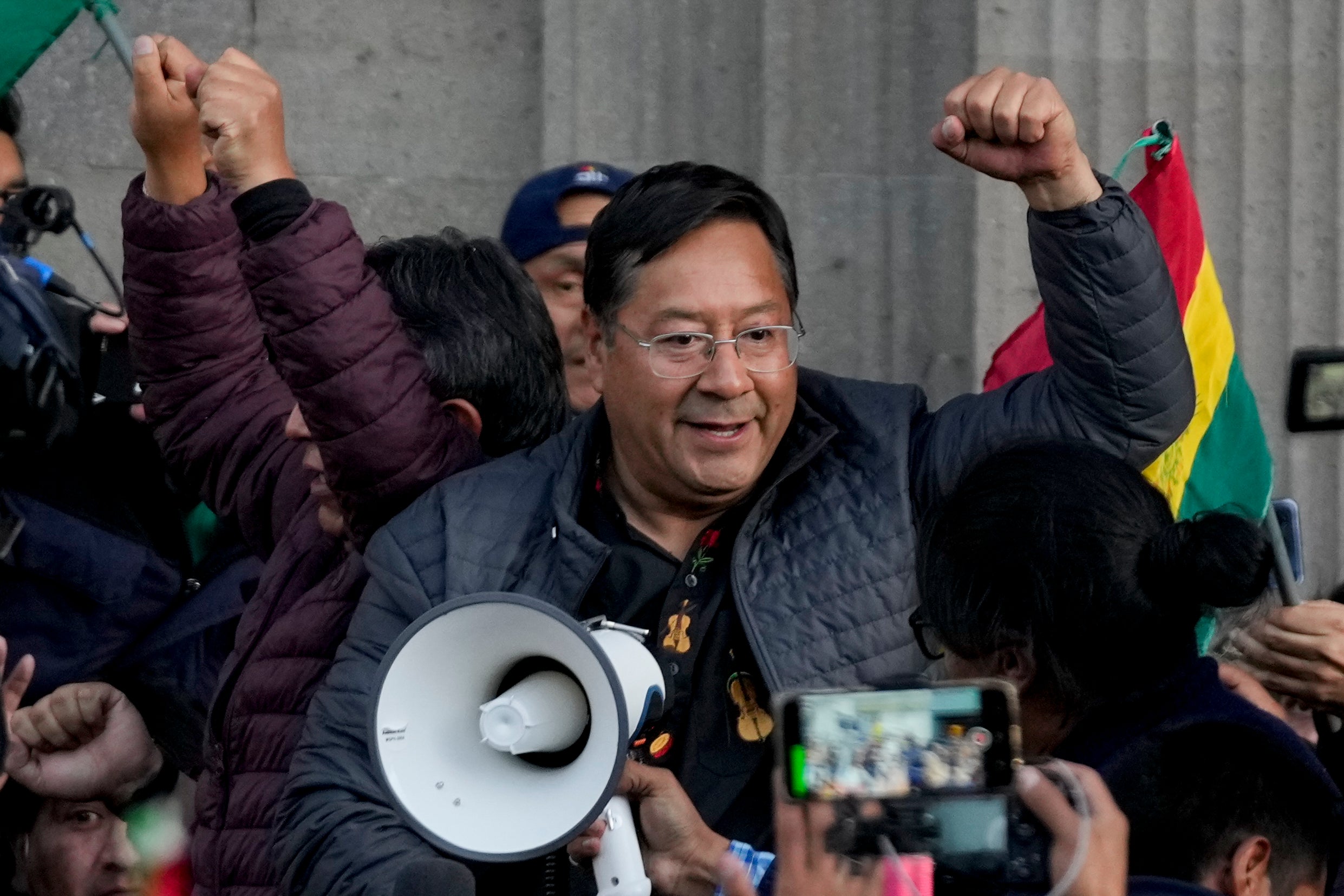
Armoured vehicle breaks through door at Bolivian presidential palace as country faces coup attempt
Armoured vehicles rammed into the doors of Bolivia’s presidential palace in La Paz on Wednesday, 26 June, during what appeared to be an attempted military coup.
President Luis Arce issued a video statement ordering the general commander of the Army, Juan José Zúñiga, to stand down.
“The country is facing an attempted coup d’état. Here we are, firm in Casa Grande, to confront any coup attempt. We need the Bolivian people to organise,” Mr Arce said.
Speaking to journalists outside the government building, Mr Zúñiga said that “for now” he recognizes Mr Arce as commander-in-chief.

Armoured vehicle breaks through door at Bolivian presidential palace
Armoured vehicles rammed into the doors of Bolivia’s presidential palace in La Paz on Wednesday, 26 June, during what appeared to be an attempted military coup. President Luis Arce issued a video statement ordering the general commander of the Army, Juan José Zúñiga, to stand down. “The country is facing an attempted coup d’état. Here we are, firm in Casa Grande, to confront any coup attempt. We need the Bolivian people to organise,” Mr Arce said. Speaking to journalists outside the government building, Mr Zúñiga said that “for now” he recognizes Mr Arce as commander-in-chief.
Latin American leaders unite to condemn Bolivia coup attempt
Several Latin American leaders, including Mexico’s president-elect Claudia Sheinbaum, Venezuela’s president Nicolas Maduro, and Uruguay’s president Luis Lacalle Pou, condemned the attempted coup and expressed support for Bolivia’s president Luis Arce.
Chile’s president Gabriel Boric also condemned the use of force by a faction of Bolivia’s army, standing in support of Bolivia’s democracy. He told reporters that he “immediately” contacted his Bolivian counterpart to offer his “solidarity”.
European leaders also voiced their concerns. Spain’s prime minister Pedro Sanchez called for respect for democracy and the rule of law, condemning the military movements in Bolivia.
The British ambassador in Bolivia, Richard Porter, echoed these sentiments. “The United Kingdom condemns any attempt to take power by unconstitutional means,” he said.
In photos: Bolivia’s coup attempt led by Juan Jose Zuniga

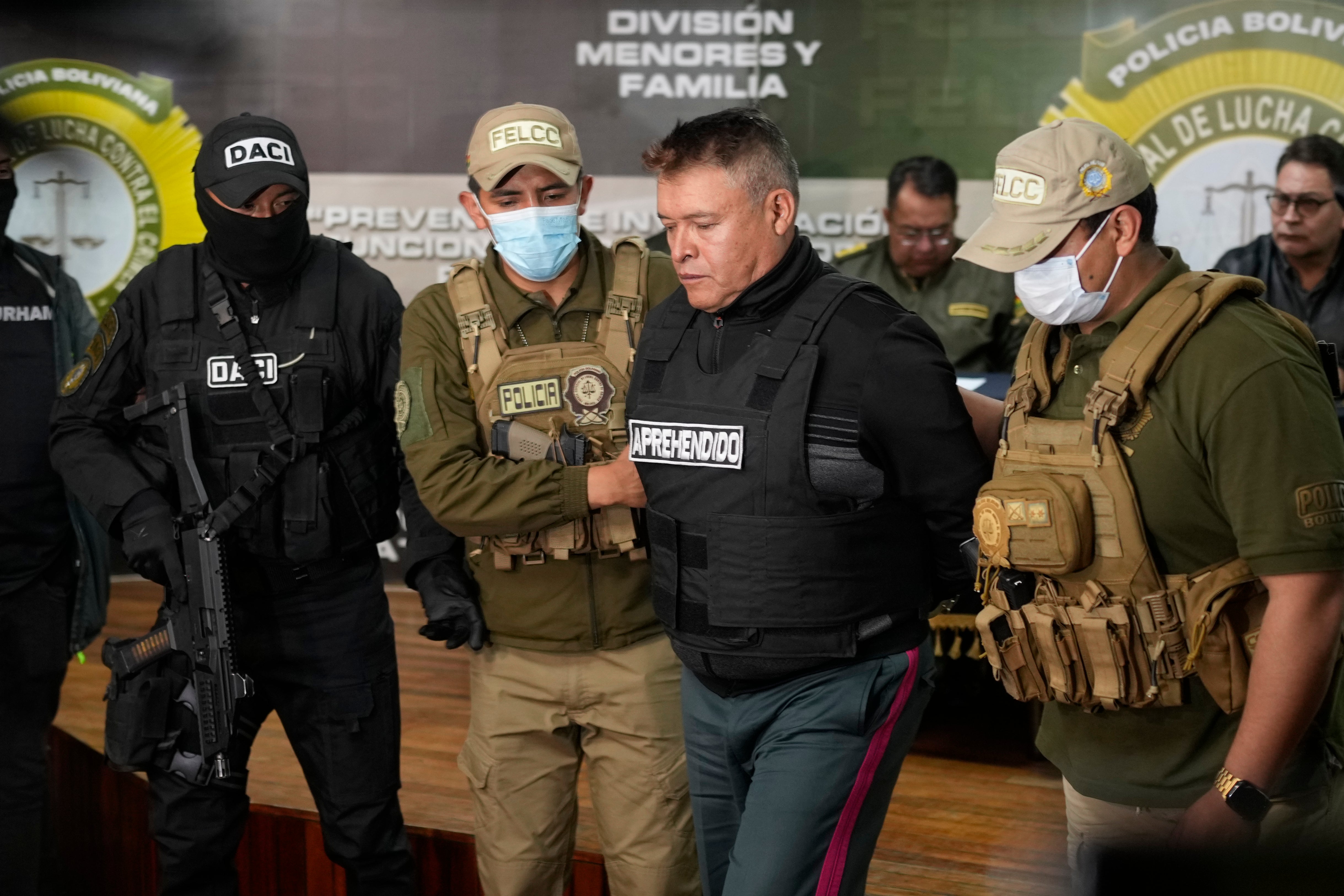
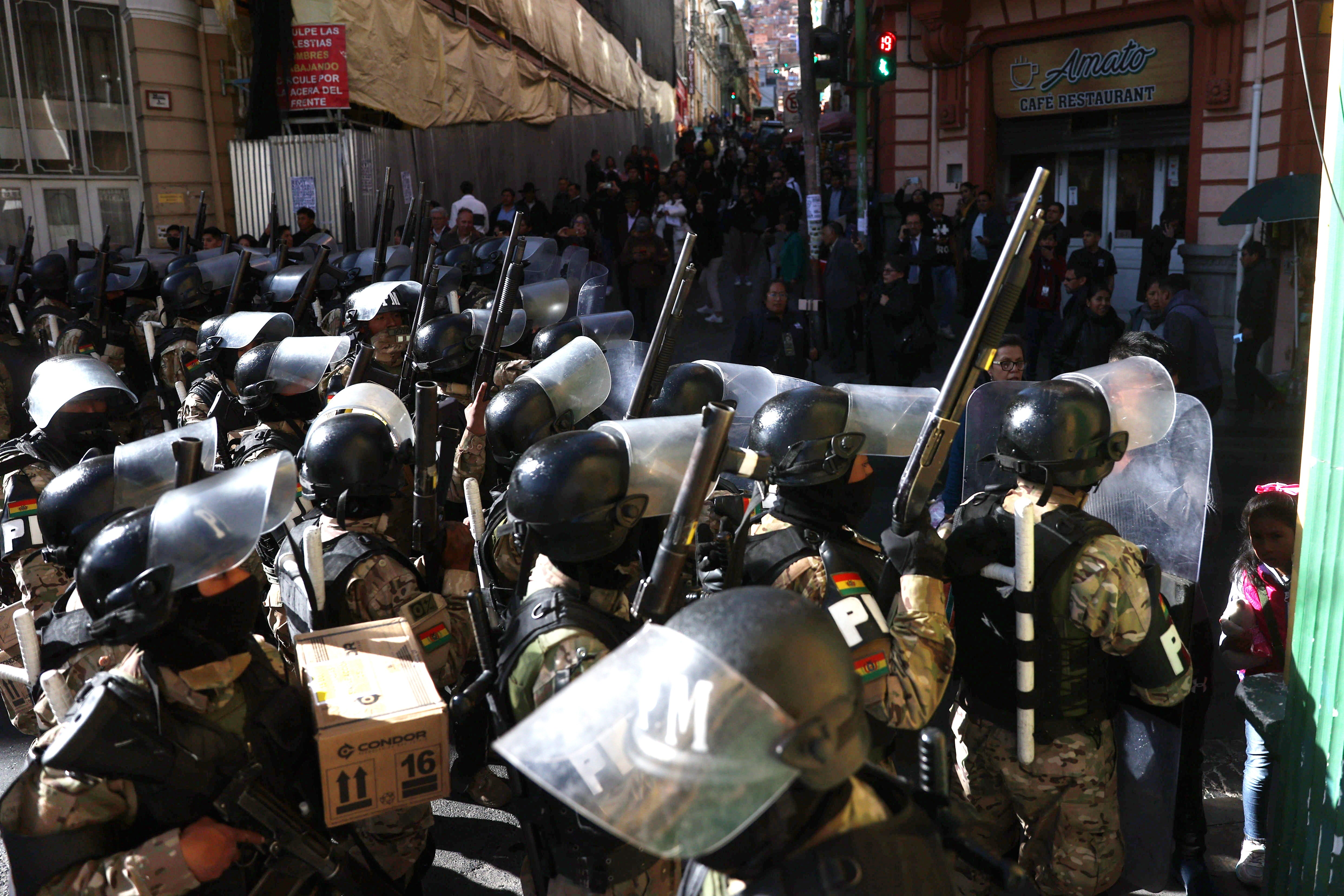
Eight injured in protests following coup attempt
Bolivia’s minister of health, Maria Renee Castro, said eight people had been injured due to impact from pellets following the coup attempt and ensuing civilian protests.
Civilians gathered in protest as hooded and armed individuals surrounded the square, leading to clashes and injuries, the daily La Razon reported.
Now-sacked general Juan Jose Zuniga, who led the coup attempt, was later detained.
Army commander who led the coup attempt detained
Recently sacked army commander Gen Juan Jose Zuniga was detained on suspicion of terrorism and armed uprising, the Guardian reported.
On Wednesday, he led military units into Plaza Murillo in La Paz, where they stormed the presidential palace, with an armoured vehicle ramming a door and soldiers rushing inside.
By late afternoon, President Luis Arce had named Jose Wilson Sanchez Velasquez as the new military commander, who then called on the soldiers to return to their barracks and avoid bloodshed.
Meanwhile, Gen Zuniga was apprehended at the entrance to the general staff headquarters in La Paz and was seen being driven away in a white police pickup truck.
Watch: Truck rams gates of Bolivia presidential palace
Who is Juan Jose Zuniga – army commander who led a coup in Bolivia?
A controversial figure in Bolivian politics, Juan Jose Zuniga – arrested since the attempted coup – opposes former Bolivian president Evo Morales, who still holds significant influence in the country. Current president Luis Arce is from the same party as Morales.
Zuniga has been vocal in his criticism of Mr Morales, who plans to run for president again in 2025.
The now-sacked army chief declared Mr Morales “could not be the president of this country again” and vowed not to let him “trample on the constitution and disobey the public’s mandate”.

Accused of embezzling nearly 2.7m bolivianos [£286,421] during his military career, Gen Zuniga’s understanding of political dynamics helped him rise in the armed forces, according to according to El Deber newspaper.
Mr Morales has also accused Gen Zuniga of leading a military organisation plotting against him.
ICYMI: Bolivian president Arce thwarts coup attempt as armed forces withdraw from palace
Bolivian armed forces withdrew from the presidential palace in La Paz after president Luis Arce denounced an attempted coup led by General Juan Jose Zuniga, who had recently been stripped of his command.
Mr Arce called for public and international support to defend democracy.
Gen Zuniga’s troops had earlier stormed the palace but retreated after Arce reinstated control and swore in a new military commander, Reuters reported.
The US and regional leaders condemned the coup attempt, while ex-president Evo Morales mobilized his supporters to defend the government.
The political tension arises ahead of the 2025 general elections, with Morales planning to run against Arce.
President Luis Arce’s career has mirrored Bolivia’s economic trajectory from boom to bust
The president of Bolivia, who was the target of a failed coup Wednesday, is a 60-year-old leftist whom many see as an opponent of Washington-backed free-market and neoliberal policies.
Luis Arce, who studied economics in London, was economy minister under President Evo Morales, whose time in office from 2006 to 2019 made him an icon of the Latin American left.
After Morales left office, Arce became president in November 2020, following Jeanine Añez’s short time in office.
Bolivian television showed Arce confronting the apparent leader of the rebellion — the general commander of the army — in the hallway of the government palace Wednesday night.
“I am your captain, and I order you to withdraw your soldiers, and I will not allow this insubordination,” Arce said.
Arce named a new army commander, who immediately ordered the troops to stand down. Their retreat ended the rebellion after just three hours.
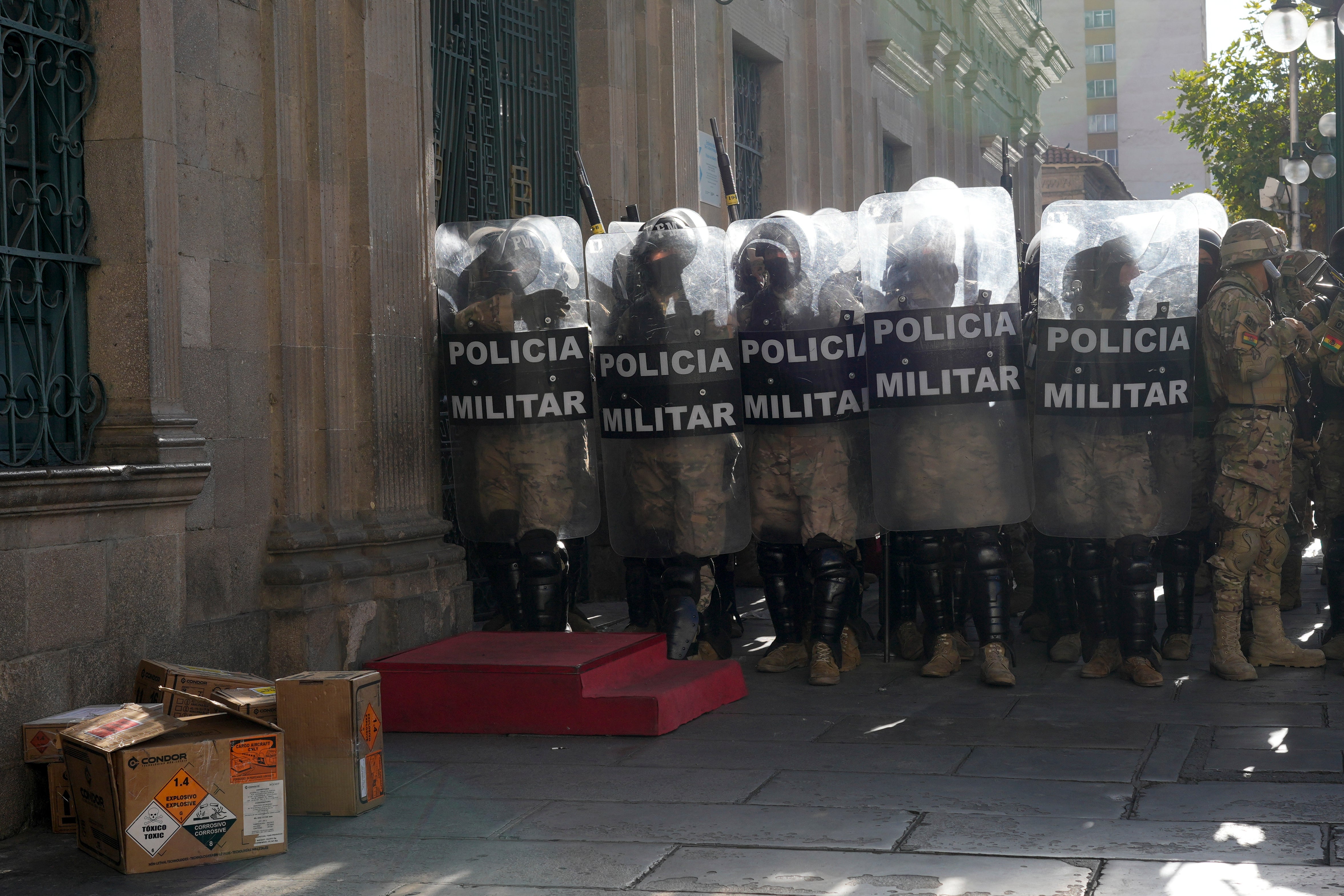
Arce’s career has mirrored Bolivia’s economic trajectory from boom to bust. He worked in the Central Bank from 1987 to 2006 and worked for Morales administering a bonanza in metals and hydrocarbons prices that came to be known as the “Bolivian Miracle.”
But by the time Arce took office, Bolivia was hard-hit by the COVID-19 pandemic and social tensions set off by Morales’ 2019 departure after street protests and extreme pressure from the military.
Neoliberal reforms in the 1990s helped Bolivia become a significant energy producer, and it moved from a low-income to a middle-income nation, according to the World Bank. The percentage of people in extreme poverty fell to 15 per cent, the state built highways and cable cars, and cities grew.
But incomes began to fall in 2014.
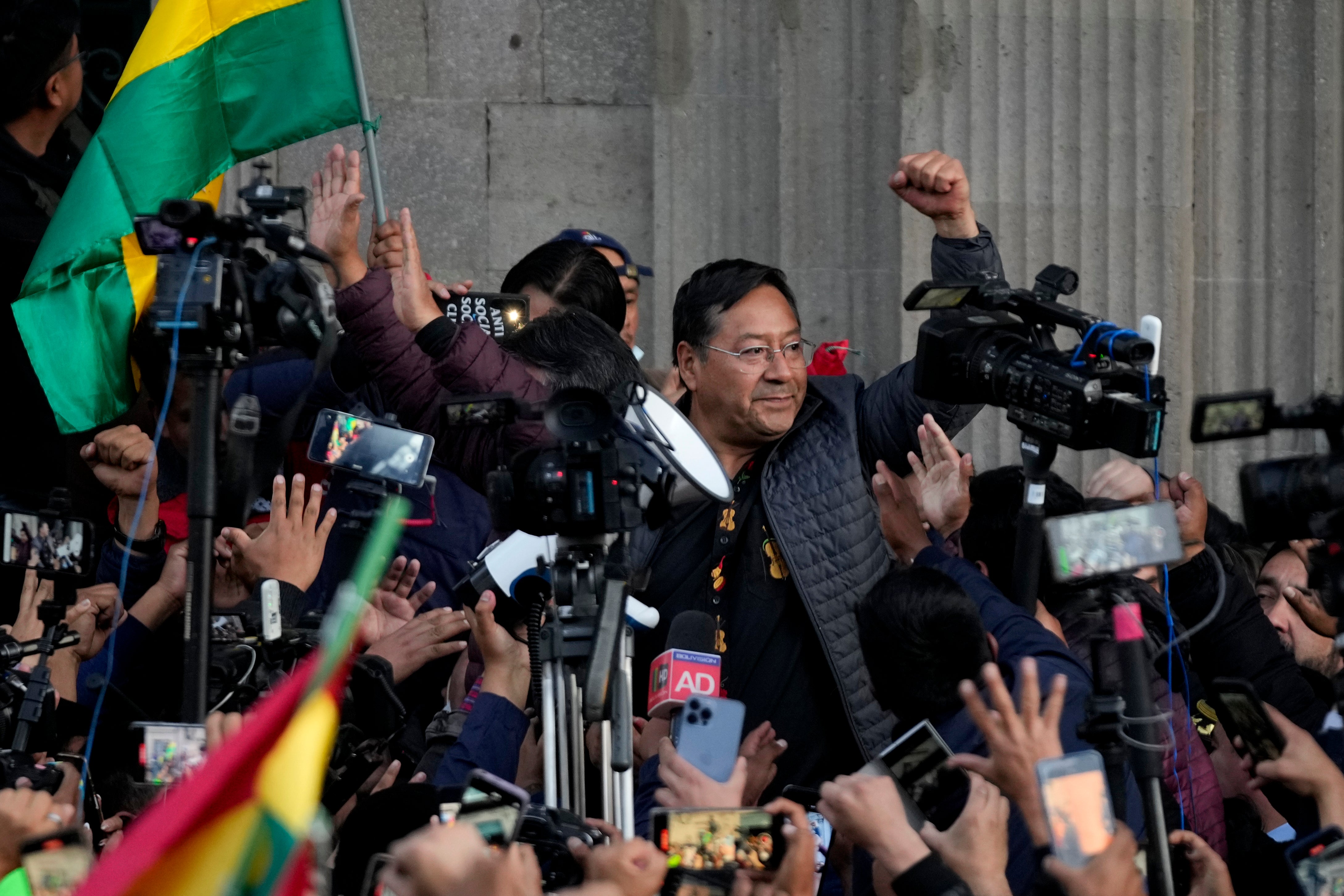
Assuming the presidency, Arce described his country’s recession as the worst in 40 years.
He recently said gasoline and diesel production no longer covered national consumption, and that the country had to import 86 per cent of its diesel and 56 per cent of its gasoline because of a lack of exploration and production.
Households also have been forced to grapple with high food prices.
Meanwhile, tensions between Morales and his party continued to rise.
In November, Arce criticized his opponents and said they “dreamed of new coup d’état”.
— Associated Press

Join our commenting forum
Join thought-provoking conversations, follow other Independent readers and see their replies
Comments